Ahead of Wisconsin Supreme Court arguments on May 13, the amicus brief, led by clerks in Madison and Milwaukee Counties calls drop boxes, which were banned in 2022, a critical, secure, and essential tool for voters, election officials, and free and fair elections
(April 18, 2024) MADISON, WI. – Public Rights Project (PRP) — on behalf of a coalition of ten Wisconsin county and municipal election officials — filed an amicus brief urging the Wisconsin Supreme Court to reinstate ballot drop boxes, essential to effectively administering the 2024 presidential election, after banning them in 2022. Oral arguments are scheduled in the Wisconsin drop box case, Priorities USA v. Wisconsin Election Commission, for May 13.
“Removing drop boxes was designed to reduce how many Wisconsinites can vote, make it harder for clerks to administer elections, and to undermine our elections,” said Public Rights Project’s Chief Program Officer Jonathan Miller. “There is no valid basis for eliminating drop boxes. Clerks’ offices have long employed drop boxes or other similar mechanisms to receive everything from license applications to utility or tax payments to absentee ballots.”
Sixty-six of Wisconsin’s 72 counties, or 91%, used drop boxes in 2020 — as did 39 states — without significant issues. Absentee ballot usage skyrocketed during the pandemic with 40% of these voters using drop boxes. Since then, drop boxes have been a target of lawsuits and unsubstantiated claims about voter fraud. An investigation by the Associated Press found no major problems with drop boxes used in 2020.
In 2022, the Wisconsin Supreme Court prohibited unstaffed drop boxes, holding that absentee voters could only return their ballots via the mail or by submitting their ballots directly to their municipal clerk or the clerk’s staff. The brief outlines three key reasons why ballot drop boxes benefit both voters and election clerks:
Drop boxes are secure.
They are often built into a clerk’s office building or located on the clerk’s office premises. Others are typically located in front of public buildings such as city halls, libraries, or fire stations.
Unstaffed outdoor drop boxes are constructed of durable materials and are permanently cemented to the ground.
Only election officials and their staff have access to the contents inside drop boxes, which have tamper-evident seals and are located in places with surveillance.
Drop boxes are convenient for voters and local elections officials.
Drop boxes can be accessed outside of regular business hours making voting more convenient for people who work long hours or care for family members.
Drop boxes are useful in rural areas where clerks’ offices have even more limited hours.
Ballots submitted via drop box can be quickly and efficiently logged into the clerk’s information system. This helps reduce the time spent on inquiries about whether a voter’s ballot is processed.
Drop boxes ensure ballots are counted.
Drop boxes decrease the number of mail ballots arriving after Election Day. In 2020, only 0.05% of all returned absentee ballots were rejected as late. By contrast, in 2022, 0.36% of all returned absentee ballots were rejected as late.
Drop boxes facilitate the curing process. If a clerk receives a ballot with a missing signature ahead of Election Day, they have time to contact the voter to provide an opportunity to fix the error.
Despite having deep ties to their communities, local elections officials' expertise is often underutilized. PRP aims to change that; the amicus brief was informed by a coalition of Wisconsin clerks who are closest to the solutions for providing voters with convenient and accessible methods of voting.
The coalition of clerks joining the brief includes:
Candee Christen, City of Stoughton Clerk
George Christenson, Milwaukee County Clerk
Julie Fitzgerald, Village of Shorewood Hills Clerk-Treasurer
Lynnae Kolden, Village of Rib Mountain Clerk
Scott McDonell, Dane County Clerk
Andrew Mercil, Dunn County Clerk
Arianna Voegeli, Green County Clerk
Maribeth Witzel-Behl, City of Madison Clerk
Claire Woodall, Executive Director of the City of Milwaukee Election Commission
Katie Zelle, Town of Vermont Clerk
PRP aims to support and defend 200+ local elections officials in the face of unprecedented challenges and attacks on democracy from both outside actors and state governments ahead of the 2024 presidential election. Launched in February, PRP’s Election Protection Hub works with local elections officials in a number of states, including Florida and Arizona. The team includes attorneys who previously helped prevent absentee ballots from being thrown out in Pennsylvania and Texas. PRP also supported election officials in Michigan to ensure they had the resources to respond to challenges and to protect more than 25,000 votes in Detroit.
###
About Public Rights Project
Public Rights Project (PRP) is a 501(c)(3) legal advocacy nonprofit that works with local government officials to protect and expand the rights of the communities they serve, including voting rights, reproductive rights, workers rights, and more. Founded in 2017 by Jill Habig, former special counsel to Kamala Harris in the California Attorney General’s Office, PRP works with more than 500 local and state governments and officials across 43 states to fight against abuses of power and help advance and protect civil rights. PRP provides state and local governments with the capacity, training, representation and legal support they need to build trust with communities, take action to enforce civil rights, and ensure that voters’ voices are heard. PRP is staffed by dedicated lawyers and public servants with decades of combined experience in community organizing, program development, and promoting affirmative litigation. Since its founding, PRP has protected 1 million working people from corporate abuse, ensured voting rights for 10 million people, and secured legal access to abortion for 6.5 million people.
Web: https://www.publicrightsproject.org/
X/Twitter: @public_rights
PRESS CONTACT:
Grace Kair, Chatham Strategies: GraceK@chatham-strategies.com; press@publicrightsproject.org




